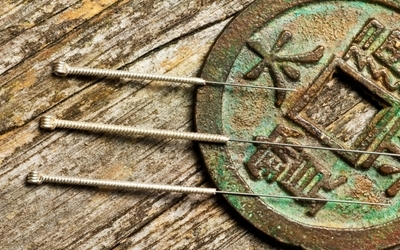Acupuncture for Seasonal Allergies
Many people expect they will have seasonal allergies for the rest of their lives and nothing can be done about this. Since seasonal allergies don’t usually interfere with work, and medications are readily available to reduce the aggravation and discomfort, many people have grown used to them. When filling out an initial health-intake form, they may even fail to list allergies as one of their conditions.
Thus, acupuncturists often only start to treat seasonal allergies after the initial reasons for the visits have been resolved, when a patient asks, “Oh, by the way, can you do anything about my allergies?”
If you are wondering whether acupuncture can cure your allergies, the answer is no. Acupuncture doesn’t cure anything. What it does do, however, is help restore your body back to its natural healthy state. When your body is stronger, it will be less likely to respond to the environment with allergic reactions.
Combined with Chinese herbal medicine, food therapy, and lifestyle recommendations, acupuncture can, in one of the least invasive ways possible, help you overcome allergies by restoring your health instead of suppressing symptoms.
Growing Problem
Seasonal allergies are a much bigger problem than many people suspect, and their incidence is increasing every year. The blame falls on modern living.
While pollen from plants and trees is often seen as the cause of allergies, from the Chinese medical perspective, what is really to blame is the body’s lowered immunity to foreign airborne particles. Decreases in immunity are also a factor in the rise of autoimmune diseases.
The most common symptoms of seasonal allergies include watery, itchy eyes and sneezing. In addition, there might be postnasal drip and coughing. Itchy eyes result from irritation of the sclera of our eyes from airborne allergens.
Sneezing means that the anterior chamber of the nose is affected. Postnasal drip points to the posterior chamber of the nose being affected more. Coughs result from the need to expectorate (spit out) mucus that has built up because of irritation of the mucosal membranes.
Chinese Medicine for Allergies
Chinese medicine associates several patterns with the treatment of seasonal allergies (allergic rhinitis). These patterns all involve the Lung, both the organ and the meridian (energetic pathway), with the root cause being a weak Spleen function. The weak Spleen affects the Lung, resulting in weakened immunity and hyperactivity of our immune system.
Key to understanding Chinese medicine treatments is understanding that the Chinese medicine reference to organ function differs from the anatomical counterpart of that organ. There are some areas where their functions might overlap but in most respects not.
In order to appreciate the organs in Chinese medicine and understand how they relate to the condition of seasonal allergies we first need to understand some of their functions in our body. This will be explained in Part 3.
Miguel Maya is an acupuncturist and practitioner of traditional Chinese medicine with a practice by Union Square in Manhattan. He accepts insurance. Miguel is also the CEO and founder of Plenty of Pros.com, a social network for professionals. www.yinyangusa.com


Comments are closed.